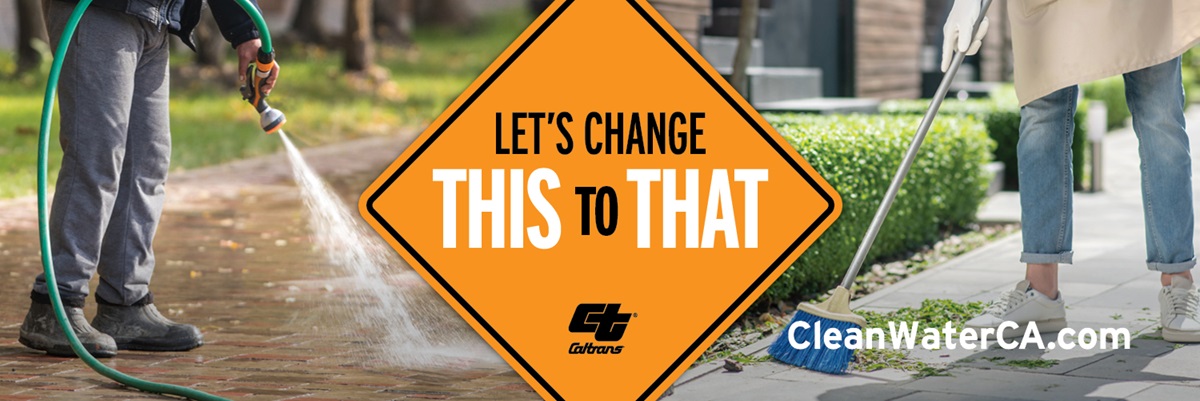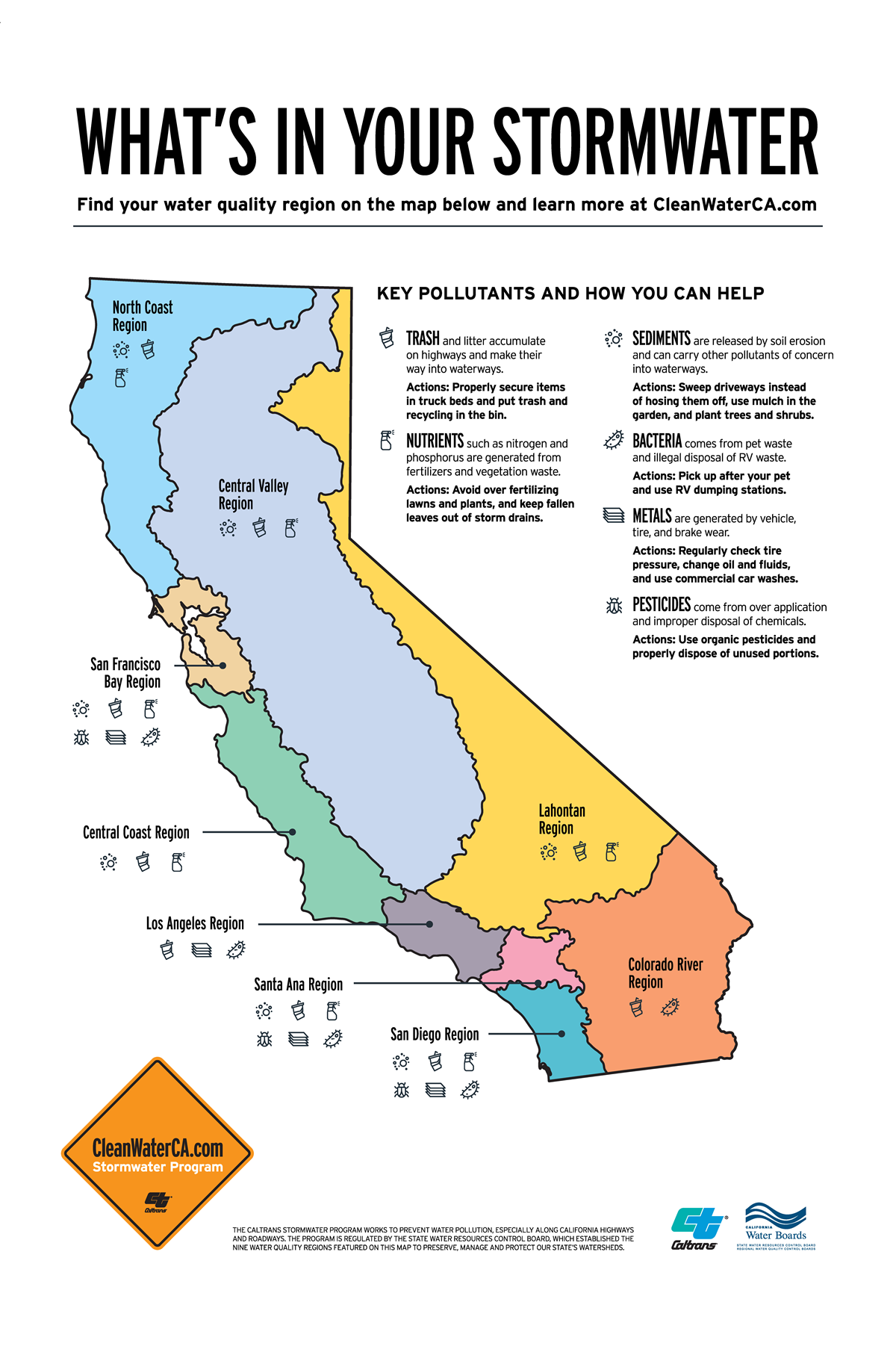
After several years of severe drought, California finally experienced much needed snow and rainfall this past winter. While the wet weather was a welcome relief to our state’s water reserves, it also came with potential repercussions as California heads into summer. As water levels and potential flood risks rise in some communities from increased snowmelt, another significant concern is pollutants entering our water system. This year's snowpack could contain a higher concentration of microplastics, nutrients, and other small pollutants that can run off into our water supply as the snow melts. These pollutants can have severe impacts on public health, causing various illnesses and diseases.
California residents unknowingly contribute to water pollution through their daily activities. The use of toxic chemical pesticides or neglecting vehicular maintenance, can further pollute our water supply. These substances inevitably end up in our waterways, contaminating local lakes, rivers, streams and the ocean. Thankfully, there are simple steps all of us can take to reduce stormwater pollution and help keep our water clean.
Californians can positively impact the environment by taking necessary steps to minimize contributions to water pollution. The “Let’s Change This to That” campaign via CleanWaterCA.com provides a list of tips to help support clean water from summer to winter and all year round. They include:
Pick up after your pet. A common misconception is that pet waste is a natural fertilizer and can be left to decompose in the environment. Not so! Pet waste can contain harmful bacteria such as E. coli and fecal coliform, which can carry diseases that affect wildlife and contaminate waterways when not properly disposed of.
Save water. Reduce water pollution by sweeping your driveway instead of using the hose and, if you can, by washing your car at a facility. The United States Environmental Protection Agency warns that washing cars and driveways at home can cause pollution as metals and fluids are washed off and enter storm drains, collecting more pollutants along the way and ending up in our waterways. If you can, choose car wash facilities that use advanced filtration systems to recycle water used for washing cars.
Go organic. This summer consider using natural pest control methods instead of harmful pesticides. Pesticides made from highly toxic chemicals can have long-lasting effects on the health of our water and the environment. By choosing organic alternatives, like companion planting or using beneficial insects like ladybugs, you can make a difference.
Give your vehicle a tune-up. Vehicle fluids, oils and brake dust are made up of toxic heavy metals that end up on roadways and highways if we don’t provide proper maintenance. Oils and fluids can be a significant source of pollution in runoff, especially in urban environments and transportation-related activities, according to a study conducted by National Academies. Over dry periods, these metals build up and inevitably create safety hazards at the first chance of rain. Simple solutions to reduce the risk of rain carrying these metals to our water include proper tire inflation, regular maintenance to check for leaks and wiping down wheel wells to remove brake dust.
Build good gardening habits. Pick up grass cuttings and other green waste so it doesn’t travel down storm drains during seasonal rains, which can lead to runoff that carries nitrogen and phosphorus into lakes, rivers, and streams. Furthermore, decaying green waste in water can cause harmful algal blooms and deplete oxygen levels for aquatic life.
Secure your load. Use a tarp and ties to properly secure items on vehicles and reduce debris or roadway hazards.
Making small changes to everyday behaviors can contribute to cleaner waterways this year and for many years to come.


